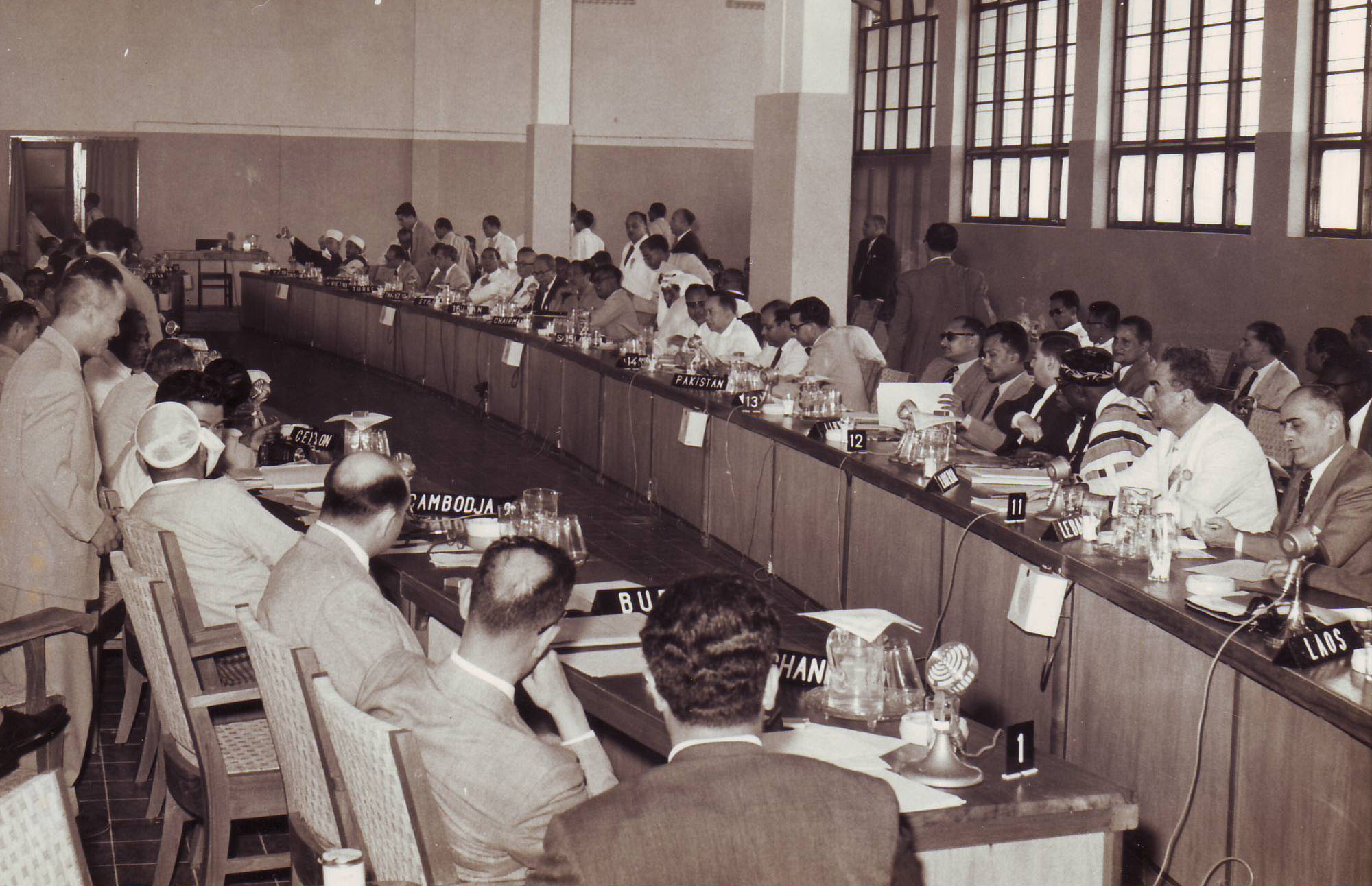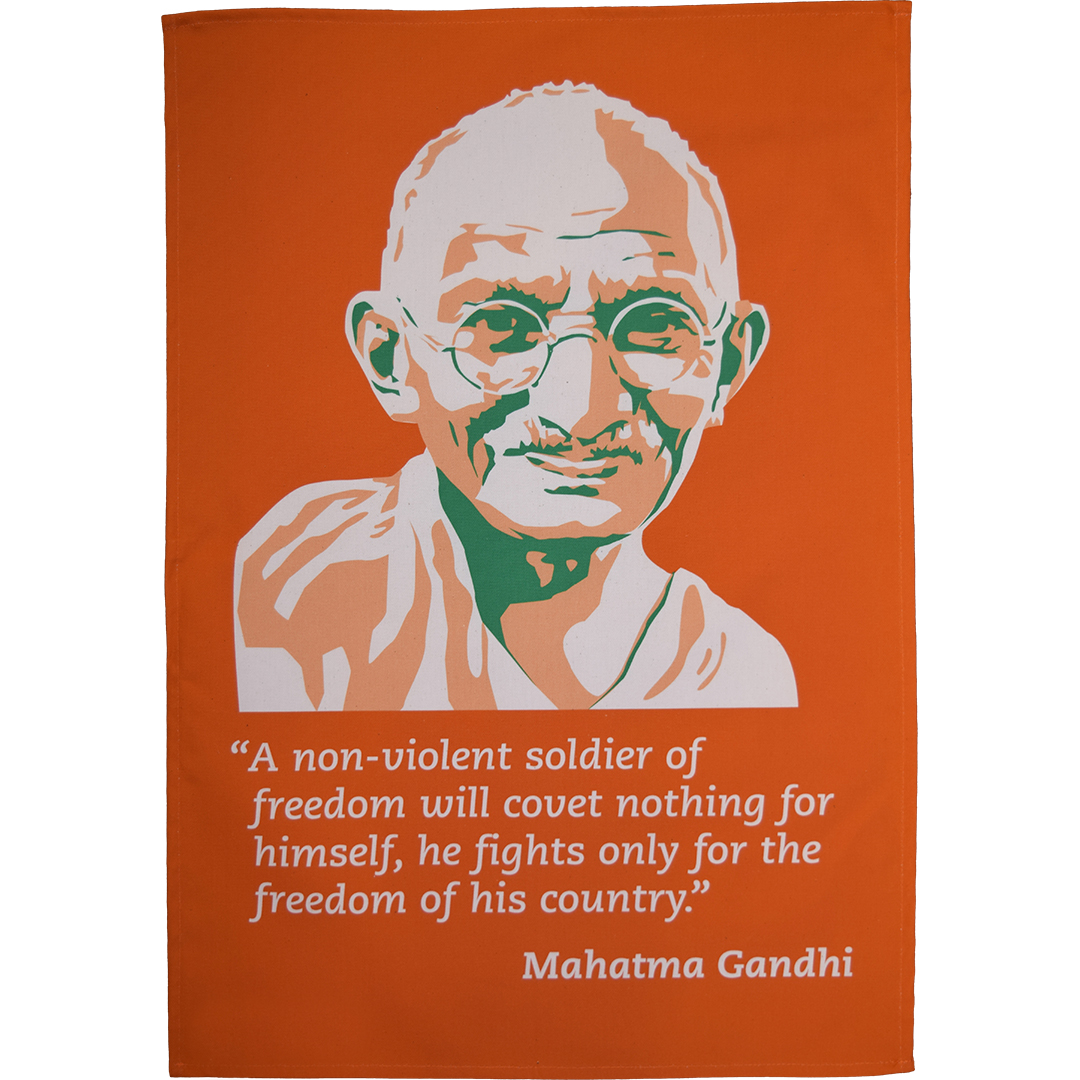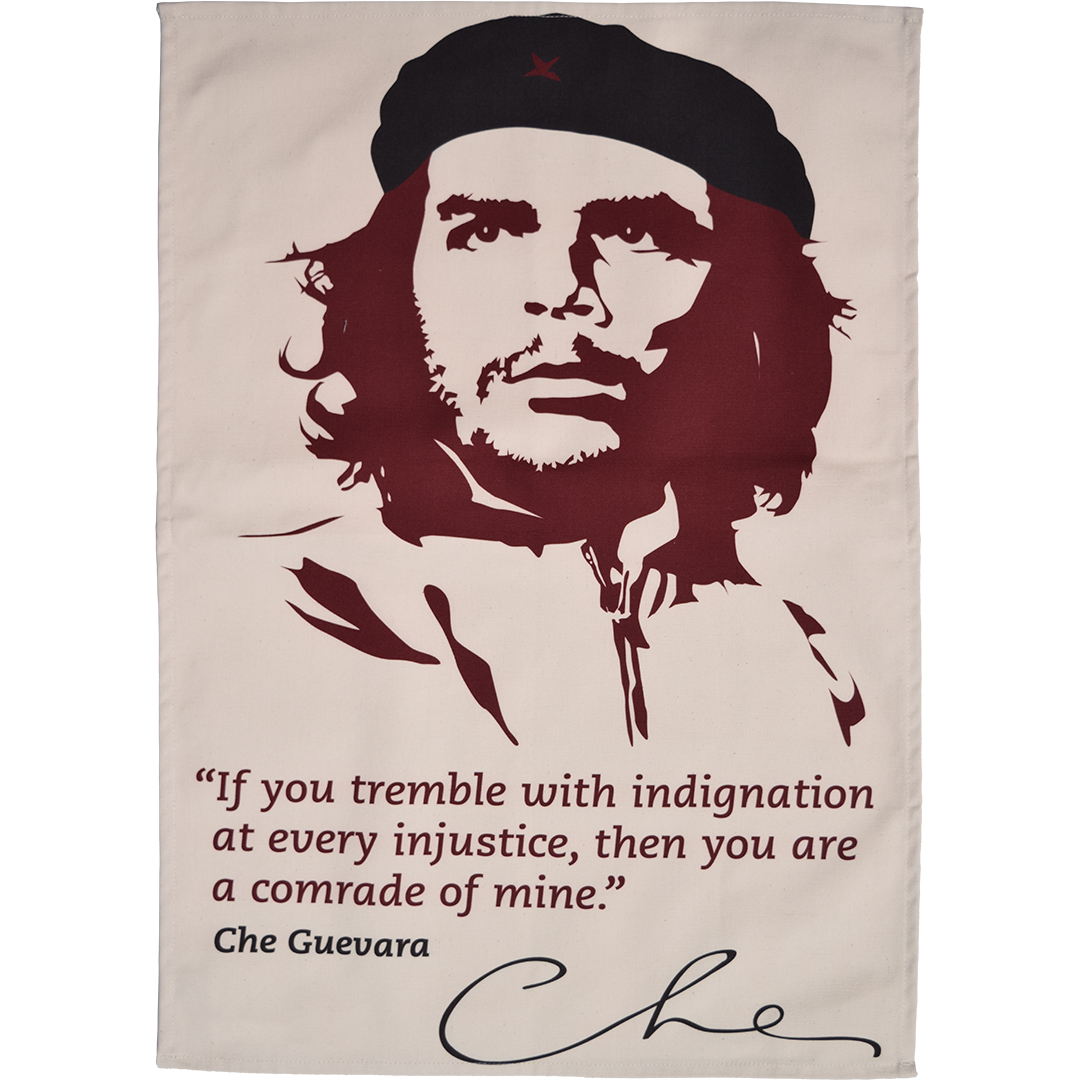Masters in Our Own House: The Story of the Bandung Conference
Posted by Pete on 18th Apr 2023

In 1955, representatives from across Africa and Asia gathered in Bandung to articulate a vision of world peace and cooperation
“Our nations and countries are colonies no more. Now we are free, sovereign and independent. We are again masters in our own house."
- President Sukarno of Indonesia
On this day in 1955, the representatives of 1.5 billion people – more than half the global population at the time – gathered in Bandung, on the Indonesian island of West Java.
They came from 29 different countries across Africa and Asia. And all of these countries shared a common experience: colonialism.
Nations as disparate as
India, Ghana, and Egypt were united in their shared experience of colonial violence.
Three years after Bandung, Achebe's 'Things Fall Apart'was published - a novel exploring the colonial history of Nigeria
Click to view our Chinua Achebe tea towel
But many of these countries were also united in triumph: in the decade since WW2 ended, colonised nations across Africa and Asia had been breaking free.
British rule in South Asia had collapsed. The
Vietnamese had driven French forces out of their country. The Mau Mau were fighting for independence in Kenya.
As President Sukarno of Indonesia said at Bandung:
“The last few years have seen enormous changes. Nations, States, have awoken from a sleep of centuries… Hurricanes of national awakening and reawakening have swept over the land, shaking it, changing it, changing it for the better.”
It was clear that the old European empires were done for. But there were more fights still to come.
Led by Gandhi's tactics of nonviolent resistance, India won its independence from the British Empire in 1947
Click to view our Mahatma Gandhi tea towel
The global Cold War between the United States and the Soviet Union was well underway by the mid-1950s.
Both sides wanted, and often demanded, the support and loyalty of the new nations of the 'Third World'.
The Soviet army occupied Eastern Europe, and the U.S. was busy organising coups against left-leaning leaders in Latin America.
Now that independence from formal empire was at last being achieved, the peoples of Africa and Asia needed to resist the informal imperialism of the Cold War superpowers. Hence, the Bandung Conference.
The Conference participants condemned “colonialism in all of its manifestations”. That included all forms of outside intervention or interference in the affairs of another country.
As for the Cold War, the powers gathered at Bandung refused to take sides.
The military dictatorship of Fulgencio Batista in Cuba was supported by Eisenhower's government - but it would later be overthrown by the Cuban Revolution
Click to view our Che Guevara tea towel
Whereas many of the new states in Africa and Asia, born and educated in anticolonial struggle, favoured some form of socialism for their economic development, that did not make them passive supporters of Soviet foreign policy.
And the U.S. was still arming its West European allies to fight brutal counter-insurgencies against independence movements across Africa, as well as supporting reactionary dictatorships in Latin America.
In 1954, the Eisenhower government had organised a right-wing coup against the elected government of Guatemala.
There was, then, little reason for countries in the Global South to trust the Cold War superpowers.
Bandung was an opportunity for the new states in Asia and Africa to reject Cold War logic and put forward an altogether different vision of international order.
Instead of old imperialism in new clothes, the Bandung powers put forward Ten Principles for the promotion of “world peace and cooperation”.
These included respect for fundamental human rights per the
UN Charter, respect for national sovereignty, and the recognition of equality between all races and nations.
If decolonisation was to mean anything, it needed an international political vision to counter that of the superpowers.
Bandung was one of the first big steps towards such a vision: a chance for the Global South to stand up and speak with its own voice.



